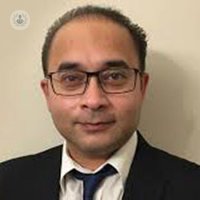Autism diagnosis in Wales
Written in association with:Statistics from The National Autistic Society demonstrate that more than one in 100 people are on the autism spectrum and there are around 700,000 autistic adults and children in the UK. Revered consultant psychiatrist Dr Raman Sakhuja explains how the condition is diagnosed in adults in Wales.

What is autism?
Autistic spectrum disorder (ASD) is a neurodevelopmental condition that begins in early childhood. The primary characteristics of ASD include difficulties with social communication and interaction, language issues, and restrictive, repetitive behaviours and interests (RRBI). ASD often coexists with various psychiatric conditions, with anxiety and related disorders being particularly common.
Additionally, abnormalities in executive functions are frequently observed, which can resemble ADHD. It's important to note that ADHD can also co-occur with ASD, making a comprehensive assessment essential to identify all potential conditions.
How can autism be diagnosed in adults?
The treatment process for autistic spectrum disorder (ASD) in Wales begins with a thorough diagnosis. This involves collecting an extensive history from the patient, carers, and other relevant sources such as school reports.
The gold standard for diagnosis combines information gathering from carers, a structured interview like the ADI-R (Autism Diagnostic Interview-Revised, which examines neurodevelopmental history), and an observed assessment such as the ADOS-2 (Autism Diagnostic Observation Schedule).
Diagnosing ASD in adults requires a detailed assessment that includes several components, as illustrated in the accompanying figure.
In Wales, the diagnostic process for ASD includes both the ADI-R and ADOS-2 assessments. Each of these assessments can take 3 to 4 hours and are conducted by different professionals. After the assessments, the professionals compile all the gathered information to reach a diagnostic conclusion, which is then shared with the patient and their family or carers. In total, a comprehensive assessment for ASD can take between 10 to 12 hours of clinical time.
Can there be other conditions overlapping?
In adults, symptoms of ASD can frequently overlap with those of other neurodevelopmental disorders, such as intellectual disabilities, ADHD (attention deficit hyperactivity disorder), and early-onset psychotic illnesses. Additionally, adults with ASD may also experience comorbid conditions like anxiety disorders, sleep difficulties, or mood disorders.
What treatments are available for ASD?
From a pharmacological perspective, there is no specific medication licensed for ASD. However, medications can be used to manage high levels of anxiety often associated with ASD and to address comorbid conditions.
Sleep assessments and optimisation can be beneficial, and general lifestyle improvements are also helpful. Patient and family education tailored to the individual's needs is crucial. Structured sessions focusing on understanding strengths and difficulties, along with practical strategies for managing them, can be very beneficial.
Psychological interventions, such as cognitive behavioural therapy (CBT), can help manage thoughts, emotions, and behaviours as part of the comprehensive management of ASD. Support groups, including those run by the National Autistic Society (NAS), which has several branches throughout the UK, can provide valuable support and information. The NAS offers assistance to both individuals and families and accepts self-referrals.
If you would like to learn more about autism, do not hesitate to book a consultation with Dr Sakhuja by visiting his Top Doctors profile today.



